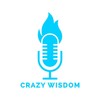
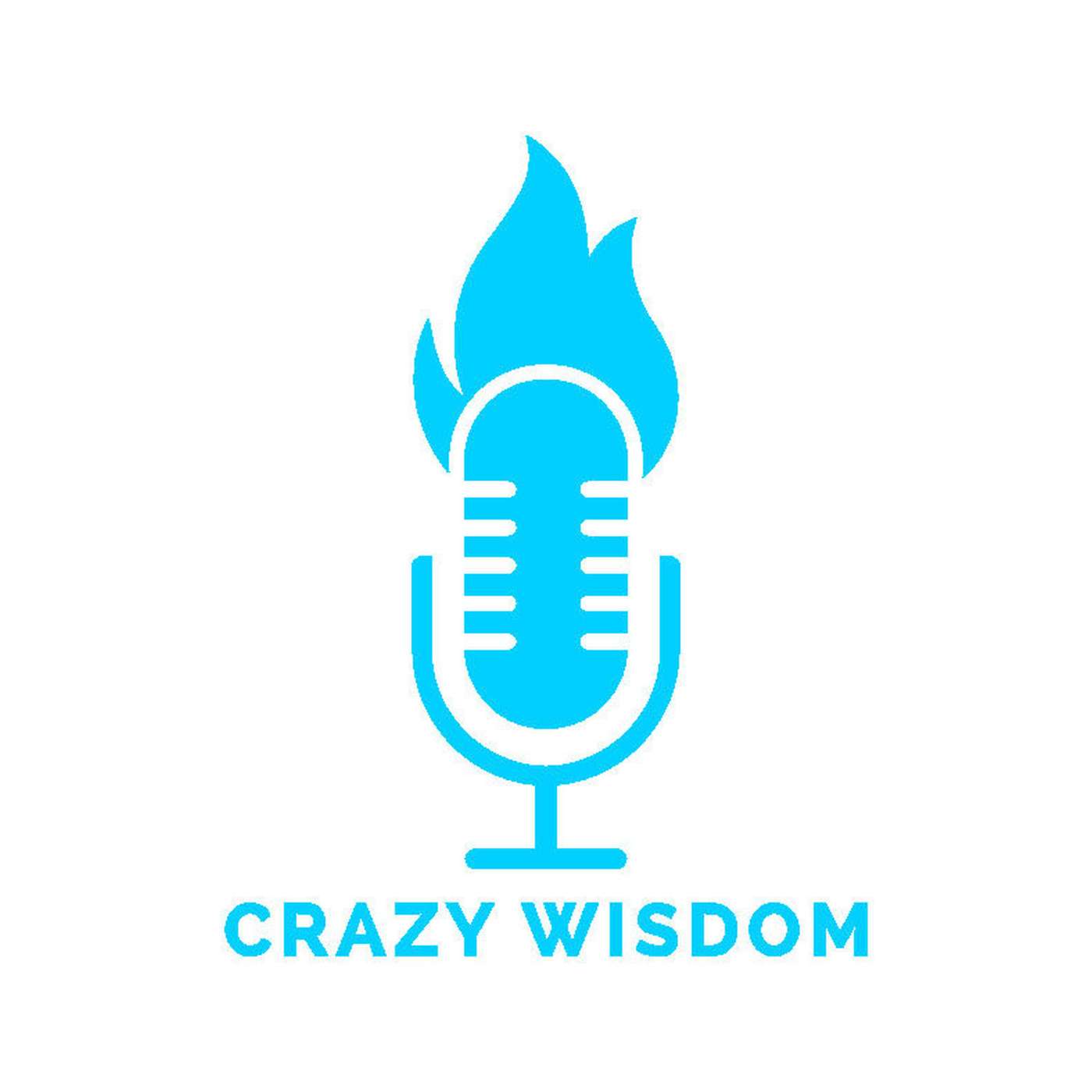
Crazy Wisdom
Stewart Alsop
In his series "Crazy Wisdom," Stewart Alsop explores cutting-edge topics, particularly in the realm of technology, such as Urbit and artificial intelligence. Alsop embarks on a quest for meaning, engaging with others to expand his own understanding of reality and that of his audience. The topics covered in "Crazy Wisdom" are diverse, ranging from emerging technologies to spirituality, philosophy, and general life experiences. Alsop's unique approach aims to make connections between seemingly unrelated subjects, tying together ideas in unconventional ways.
Episodes
Mentioned books

Jan 23, 2021 • 55min
How are plant psychedelics different from synthesized psychedelics? - Isabelle Kupka
In this episode, Isabelle and I discuss psychedelics, the differences between organic and synthetic psychedelics, the differences in how drugs are viewed in Brazil as opposed to the United States, psychology, the history of psychedelics, the death of God in the West, and the resultant coping mechanisms, her experience with Ayahuasca, and much more. Enjoy. (1:40-5:08) Unexpected differences between the laws governing drug and psychedelic use in the U.S. and in Brazil, and how funding is granted for the study of psychedelics in the U.S. and in Brazil. The intriguing methods Brazilian academics use in their study of psychedelics. (5:08-9:03) Should psychology be treated as an objective science? Some historical examples of what has happened when subjective metrics become taken for objective measures. Are there universalities in human behavior? Or is psychology a totally subjective endeavor? (9:18-15:39) The death of God in the west; the new wave of spirituality rising; the role psychedelics have to play in this rise; the danger inherent in throwing the baby out with the bathwater when it comes to rejecting the nihilism of western scientific rationality; are psychedelic ceremonies really ancient? How did humans discover psychedelics? How have psychedelics been used across history? Is there a difference in the experience between trips on organic psychedelics (e.g., psilocybin, iboga) and trips on artificial psychedelics (LSD)? (18:50-21:21) Isabelle describes her experience with ayahuasca (23:02- 25:50) Are plants sentient? Are they agents? Is it possible that plants like psilocybin and the ingredients found in ayahuasca may have motivations of their own that are in conflict with the motivations human beings have for themselves? If they are sentient, can we really say they’re our friends? Or is it the other way around? Is civilization killing us and plants trying to rescue us? (29:03-33:08) Why the switch, by many Westerners, to the teachings of eastern philosophies may not be such a good idea and why Western society may need to come up with its own answers to life’s existential questions. (50:09) An interesting observation on the effects of cold on cognitive ability.

Jan 7, 2021 • 1h 7min
Awakening from the Matrix with Alex Levy
This episode is different! Here, I'm interviewed by Alex Levy for an episode for his podcast "Through Conversations" which I also decided to publish here. Enjoy! 3:30 - Stewart's approach to interviews 6:00 - How should we use Twitter? 7:30 - Are we curious by nature? 8:34 - "Question asking is one of the most courageous things we can do" 10:00 - Are we able to cope with uncertainty? 13:19 - The best thing we can do is to awaken. 15:35 - The benefits of living under uncertainty. 17:45 - The ego from the Eastern Tradition. 18:55 - There are no sufficient words to answer the question of "Who am I?" 19:55 - Facebook as a place to portray the idealized self 21:30 - Some of the consequences of the pandemic. 24:30 - Are our leaders the reflection of ourselves? 27:00 - THE MATRIX OVERLORDS INTERVENED IN OUR CONVERSATION. 29:45 - Does natural selection favors organisms that are truth seekers? 31:05 - Assortative Mating on Ideology Could Operate Through Olfactory Cues 32:00 - Is there something beyond conditioning? 34:15 - The Matrix: Red Pill or Blue Pill? 37:00 - Can we cope with our death? 44:25 - If we live for eternity, how long would it take for us to become crazy? 45:45 - Has the pandemic made us afraid of life? 48:16 - Are we in a meaning crisis, as John Vervake says? 50:30 - Exercise on awareness - pointing towards awareness. 52:32 - Why do I want to know the truth? 56:00 - Finding the truth may make you more antifragile. 1:00:00 - Technology, made by humans, is growing exponentially, why are we having a hard time coping with its repercussions? 1:03:00 - The paradox of paradoxes.

Nov 2, 2020 • 50min
What effects will decentralized currency have on Nation States? - Zura Guerra
Zura Guerra is a digital nomad that’s building a startup. In this episode we discuss technology in Latin America, the pandemic, decentralizing currency, and much more. You can find her on Instagram at zuraguerra, and on her blog at apolune.com. Enjoy. (2:23 - 4:15) Surviving the pandemic in Argentina, the country with the record of the longest stretch of lockdowns. (8:21 - 13:02) What will the startup ecosystem in Brazil and Mexico look like in the next few years? Will there be more buyouts by larger, more established companies? Does Latin America have the systems and infrastructure for that type of evolution? (13:03 - 14:16) A year ago, the biggest opportunities for technological innovation were to be found in payments, online education, and healthcare among others. Is that still the case today? Why innovators should integrate cash into future payment solutions. (14:40 - 20:49) How rural Mexicans (which make up the majority of the population) have adopted and utilize cryptocurrencies in their day to day lives. How Brazilians use QR codes to send and receive money. (21:31 - 24:08) Will the evolution of technology and decentralized currency lead to the weakening of nation-states? Is it already occurring? Are there examples of this happening? (32:02 - 36:15) The biggest thing Zura has learned about startups, so far, on her journey to build one. (36:17 - 41:38) What needs to happen for crypto to be adopted in more countries? And what are the risks involved with these happenings? What is money really? Should you still trust the dollar? (41:41 - 46:12) Why crypto should be more about wealth establishment than actually breaking away from nation-states or establishing independence for a small group of people and how Etherium set an example for this. Why we should think of ourselves more as global citizens
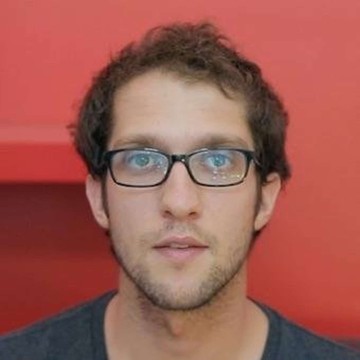
Oct 31, 2020 • 54min
What has COVID19 done to the experience economy? Michael Morgenstern: CEO and Cofounder of This is Definitely Real
Here are some other questions we discuss: What is alternate reality cinema? How did COVID19 change the usage of social media? How did the online world change the meaning of fiction? How did COVID19 change the way that cognition is distributed on the internet? How do you build habits to affect the structure of human society? How did social media change psyops from central governments? Did we forget the important lessons that the initial internet taught us? How does Facebook think about second-order engagement? Check out an event that Michael is hosting this Friday: https://www.facebook.com/events/238478103910064/

Oct 5, 2020 • 13min
How to greet in West Timor
The second entry in my solo podcast detour! In this episode, I talk about my attempts to experience the cultures I encountered, in my travels across Southeast Asia, more deeply, and my quest to find cultures that had not been as thoroughly exposed to the internet and its effects, as the West and similar modern societies. In the course of my travels, I spent some time on an island called West Timor and participated in the most awkward custom I'd ever experienced up till then. Listen to hear more. Enjoy!

Sep 28, 2020 • 13min
A devious tea-time in Shanghai
I've decided to go on a detour with the style of my episodes. I'm currently not as motivated to interview anyone at the moment and so I decided, on suggestion from a friend, to share a few stories from the various experiences I've had in my life. This episode is the first iteration, it's about my time in Shangai back in 2006. Enjoy!
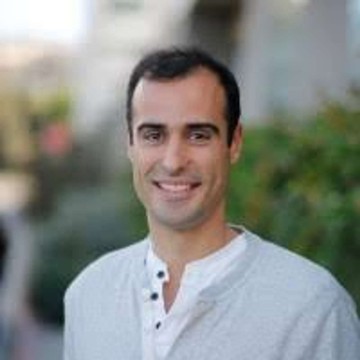
Sep 25, 2020 • 1h 16min
The Wizard and the Wand: Humans vs AI - Francis Pedraza
Francis is the CEO of Invisible Technologies; a business outsourcing and automation company. On his third appearance on the Crazy Wisdom podcast, we discuss AI, the ideal society, individualism, whether or not AI will conquer humans and so much more. You can reach out to Francis via mail by francis@invisible.email, or on Twitter, Facebook, or LinkedIn at Francis Pedraza (@francispedraza) (1:24 – 10:53) A quick summary of what Invisible Technologies is about, how it works, its incentives, and what it seeks to achieve, as well as a quick narrative of the company’s rocky history, how it evolved into its current form, and how it is able to offer its USP. (11:09 – 13:05) The surreal nature of thought; how a single thought can be extremely complex and hold a world of information; why Francis thinks classifying emotions as ‘irrational’ is wrong. (14:10 – 23:51) Why experts tend to be blind; why AI isn’t going to kill us and can never replace humanity, and why you should read Nick Bostrom’s ‘Superhuman’ with your ‘whole brain’ (i.e. Ian McGilChrist style); can we teach a computer to just be? Are AI information processing and human thinking the same process? Does AI think? (23:53 – 28:50) Examples of the human inability to predict the future; why AI needs thinkers; a theory of what the singularity may look like, as opposed to the merging of tech and consciousness view; what is the constantly increasing connected nature of society doing to individuality? (28:51 – 37:42) Why enlightenment isn’t the destruction of the individual; why a society that thrives is a paradox and what this looks like; why Utopia is ultimately fascism and why we should go for another idea instead- as presented by Francis; why none of our mechanisms- not the constitution, and not AI- can save us. (37:45 – 43:34) Can a community become an individual? It is possible for a large group of people to be fully united in goals and aims? How to get a society of 500 million people to agree to a basic social contract. (45:30 – 50:39) What an ideal society looks like in Francis’ view; why he’s anti-utopian; why progress is a tricky metric to measure; why societies should constantly readdress their ideas of progress; why technocracy is a sham, and why society shouldn’t be left in the hands of ‘experts’. (50:58 – 1:01:11) Why enlightenment is a politicized term; why there isn’t just one ultimate enlightenment. Back to progress, why it’s a narrow concept in light of the vastness of being and the knowledge humanity as a whole has lost to time in the death of ancient civilizations. Why non-violence is the core rule of an ideal society and why this rule makes the ideal society inherently unstable. Why the fear of death is the major hindrance to building the ideal society. (1:01:12) Why the individual is greater than society, even though society is bigger; where do ideas come from?; why immortality won’t solve the dilemma of being a human being in our vast universe; What the real aim of meditation is; why you can never fully understand existence. Alternate interpretations of old bible stories; Francis’ summary of what the ideal society is.

Sep 23, 2020 • 46min
Depression is a disconnection from your body - Dr. Emily Splichal
Emily Splichal is a podiatrist and the founder of Evidence Based Fitness Academy (EBFA). In this episode, we discuss somatosensation, how awareness of interoception can help manage stress, stem cells, sound and vibration healing, breathwork, chronic pain, functional fitness, and much more. Emily is working on a book titled “Own it: Offensive Techniques to Owning your Health.” You can find her at her various websites namely, dremilysplichal.com, ebfaglobal.com, and neboso.com, or on Instagram @dremilydpm. Enjoy. (Note: This podcast deals heavily with anatomy and uses a lot of medical terms; you may want to skip if that doesn't pique your curiosity.) (2:34) Why don’t other animals have ruffini receptors/ruffinian endings found in humans? (5:53 – 7:18) The relationship between breathing and stress, and somatic responses and stress; an interesting definition of stress in terms of energy. 7:50 – 12:49) Sound healing: how sound and vibration can be used to influence muscular activation and relaxation (it may be possible to sing your way into a high); a possible theory of how breathwork helps manage stress (12:56 – 18:59) Our perception of the inside affects how we view the outside, even before we’re born; how we learn about the world from our mothers while in the womb; the importance of being able to regulate emotions and maintaining a relaxed state of mind during pregnancy, and while raising children. (18:58 – 25:53) Most of our agitation and chronic pain issues result from unconscious cognitive and emotional processes, preventing us from being able to effectively deal with them consciously; how psychedelics and alternative therapy methods can give us access to these aspects of ourselves and help us work through them. (27:34 – 29:43) Stem cells: do they work? Emily shares how she uses them in her treatments and the wrong ways doctors apply them in treating patients. (29:45 – 31:33) Growth factors, what are they? What do they do? Are they different from hormones? (31:39 – 33:56) Functional fitness vs artificial fitness; hammers and axes vs dumbbells and barbells. (33:57 – 35:07) The relationship between the feet and the brain; why the feet are so neurally important; what running barefoot, in nature, can do for memory.

Sep 21, 2020 • 48min
What do you believe about your market that most people don’t and why? - Tuto Assad
Tuto Assad is the founder of Vitau, an online subscription pharmacy for patients with chronic diseases, specifically targeted to Latin America. In this episode, we discuss entrepreneurship, philosophy, his diabetic conditions, and Tuto gives us a glimpse of what the medical and pharmaceutical industry in Mexico are like. You can find Tuto on all social media platforms at Tuto Assad or on his website at tutoassad.com. Enjoy! (3:13 – 6:28) Seeing beyond the sheen Silicon Valley has placed on entrepreneurship; why you must contextualize when trying to replicate a business model that worked in an environment different from yours; the differences between the healthcare systems in Mexico and the U.S. (6:31 – 8:00) The one thing every entrepreneur needs to keep in mind when it comes to knowledge. (9:10 – 13:21) The major problems patients with chronic diseases in Mexico face; how most local pharmacies fail to address this issue; the solutions Vitau aims to enact in this space. (13:24 – 16:30) An interesting definition of strategy; the two rules that guide Vitau’s focus; why falling in love with a problem is more important than being fixated on a solution. (16:32 – 19:58) Tuto discusses his diabetic condition, how it inspires him to live a healthy lifestyle, and the encouraging words from a priest, when he was first diagnosed at 13, that laid the foundation for his current drive to help people with chronic conditions. 25:00 – 27:14 What is your life philosophy? Tuto discusses his beliefs about what life is and what we’re here to do, and how that relates to doing business. (27:15 – 28:36) How to navigate the hiring process, and relationships in general; how to navigate the search for someone with similar values such that you don’t end up with a clone of yourself. (29:54 – 33:04) Does it make sense to believe in God? If today’s mythology is yesterday’s religion, doesn’t it make sense to think that today’s religion will be tomorrow’s mythology? Hear Tuto’s views on religion and how his search for truth led to him abandoning his Christian faith. (33:48 – 35:15) Why are we trying to understand why we’re here? Why do we try to define life? Tuto offers his opinion on the issue. (39:21 – 42:21) If you had no fears at all, would you have beliefs? A discussion of how fear has shaped most of our religious beliefs and the deepest fear most people have. (42:23) A question to ponder: What do you believe about your business/market that most people don’t and why?
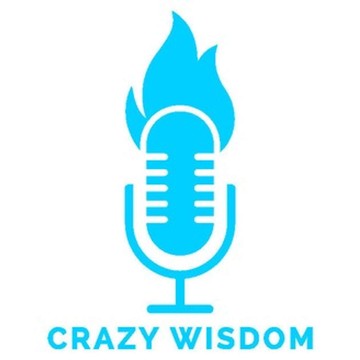
Sep 18, 2020 • 46min
How not to die while camping out in the snow - Claire Tiwald
Claire Tiwald is a painter, illustrator, sculptor, and comic book artist, and Fb friend of mine. We talk about wilderness camping, bears, mountain lions, camping in the winter, r-value and why it is important and much more. You can find Claire on her website clairetiwald.com and on her Instagram page @grimlemur. Enjoy! (5:04 – 7:52) What to actually do when you encounter a bear up close; surprising information on which bears are the most dangerous (has little to do with size). (8:07 – 9:25) Countryside vs city, which has scarier people? (I should run a poll on this); why animals are easier and more straightforward to deal with compared to human beings. (10:04 – 12:27) Bears vs Mountain Lions, which should you be warier of? When and where you should watch for mountain lions; how a donkey got between Claire and a bear. (13:29 – 14:45) Do you know you can take a donkey on the Pacific Crest Trail? The pros and cons of doing so; Claire’s experience with one. (16:00 – 18:54) How emotional struggles, her dad, and the healing effects of nature cultivated Claire’s love for the wilderness. (19:00 – 26:50) Tips on camping during winter; r-value: why you should pay attention to the r-value of your camping gear; why you should be wary of synthetic liners, blankets, pants, and clothing in general; why cotton is worse than synthetics for camping during the winter. (26:50 – 30:11) Do you know it’s possible to get hypothermia in the summer? Under special conditions of course; why listening to your body and being in the moment during wilderness hikes is a must; and, going back to camping during winter, how stacking claories up can stave hypothermia off, and why you shouldn’t take any alcohol when camping during the winter. (31:51 – 36:06) Weather forecasting and navigational precautions to take when deciding to go camping during the winter; courses to take on wilderness navigation and how to improve your ability to navigate in general. (37:00) Do you know it is illegal to have a drone in national forest airspace?


